This paper, presented at the 2005 annual meeting of the American Educational Research Association (AERA) discusses the contributions of community organizing to current conceptions of accountability for the improvement of public schools. According to the authors, the two predominant models, bureaucratic accountability and professional accountability, do not take into account the complex social and political contexts in which public schools function. The authors found, in case-study research on five community organizing groups working for school reform, that community organizing develops public accountability. Public accountability connects schools and their communities, broadens the range of participants who take responsibility for school improvement, and uses a public process to maintain pressure for effective action. The authors observed four shared strategies used by the groups in this process: 1) public conversations – open forums for deliberation among a range of stakeholders, leading to problem solving and commitments to action; 2) monitoring programs and policies – gathering and analysis of data to evaluate the effectiveness of improvement efforts; 3) participating in the public arena – building political will through get-out-the-vote campaigns and meetings with elected representatives; and 4) joint ownership and relational culture – developing ‘public’ relationships that lead to collective action. The authors conclude that public accountability, although not widely considered, is essential for improving urban public schools.
Reframing Accountability for Urban Schools: Efforts from the Ground Up to Improve Public Education
Date: April 2005
Related Publications
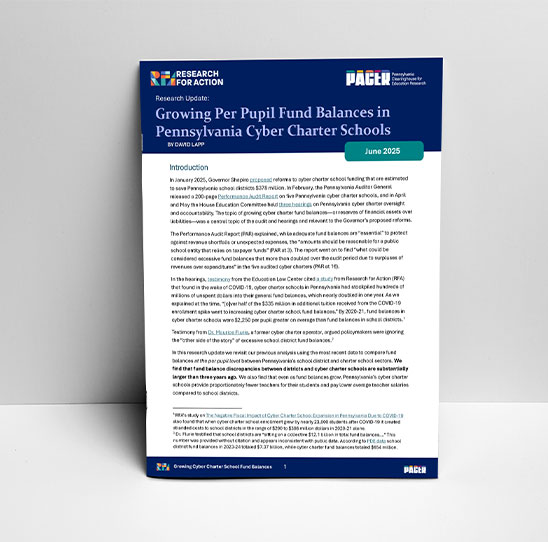
Publication
Growing Per Pupil Fund Balances in Pennsylvania Cyber Charter Schools
David Lapp
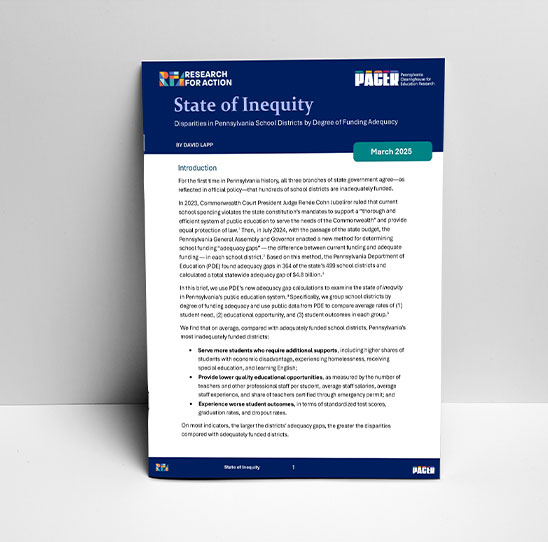
Publication
State of Inequity: Disparities in Pennsylvania School Districts by Degree of Funding Adequacy
David Lapp

Publication
Patterns of Student Mobility Among English Learner Students in Public High Schools in Philadelphia
Lindsey Liu, Sean Vannata
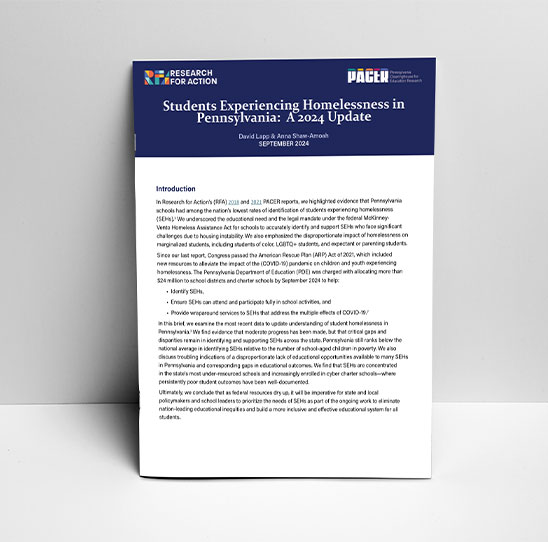
Publication
Students Experiencing Homelessness in Pennsylvania: A 2024 Update
David Lapp, Anna Shaw-Amoah
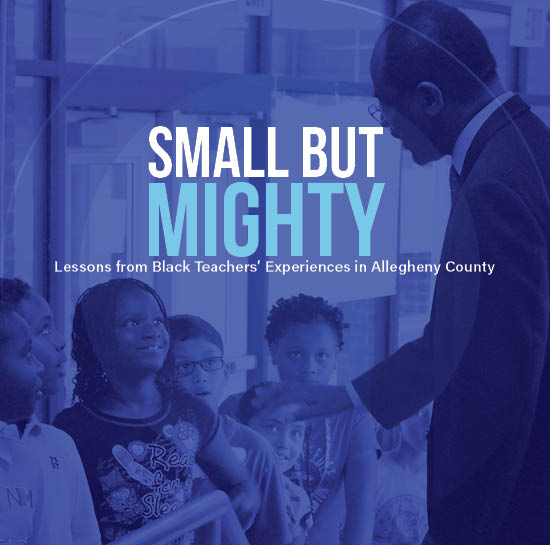
Publication
Small but Mighty: Lessons from Black Teachers’ Experiences in Allegheny County
Siettah Parks, Kevin Burgess, Leana Cabral, Mary Eddins, Alita Robinson
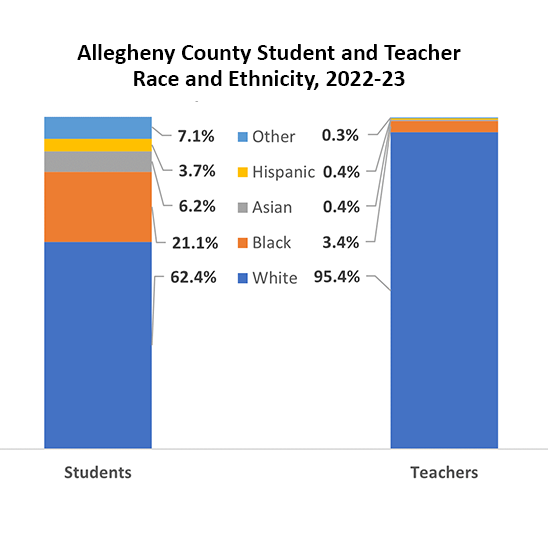
Publication
Allegheny County Teacher and Student Demographics: 2022-23 Update
Mary Eddins, David Lapp, Anna Shaw-Amoah

Publication
Exploring the Diversity and Supports for School District of Philadelphia English Learners as they Prepare to Transition to High School
David Bamat, Sean Vannata, Lindsey Liu, Molly Schlesinger, Alyn Turner
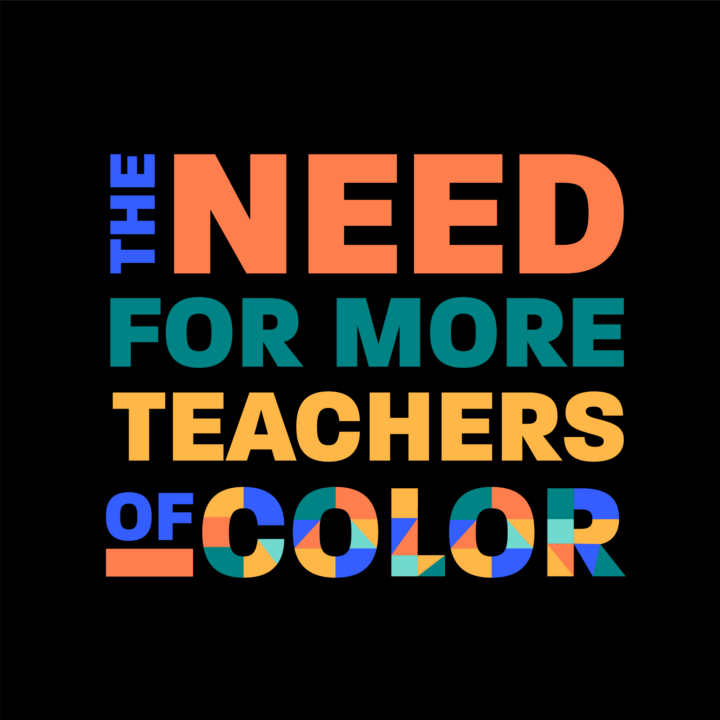
Publication
The Need for More Teachers of Color
Leana Cabral, Mary Eddins, David Lapp, Saxon Nelson
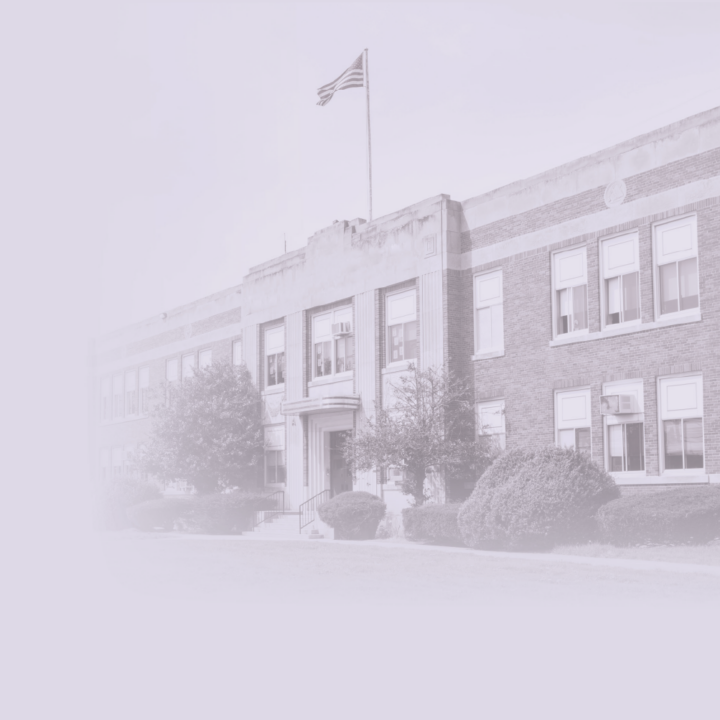
Publication
FAQ: Superintendents in Pennsylvania School Districts
Mary Eddins, Leana Cabral, David Lapp, Molly Pileggi, Saxon Nelson, Ammani Ahmad-Khan
Publication
Access to Experienced Teachers in Allegheny County
Mary Eddins
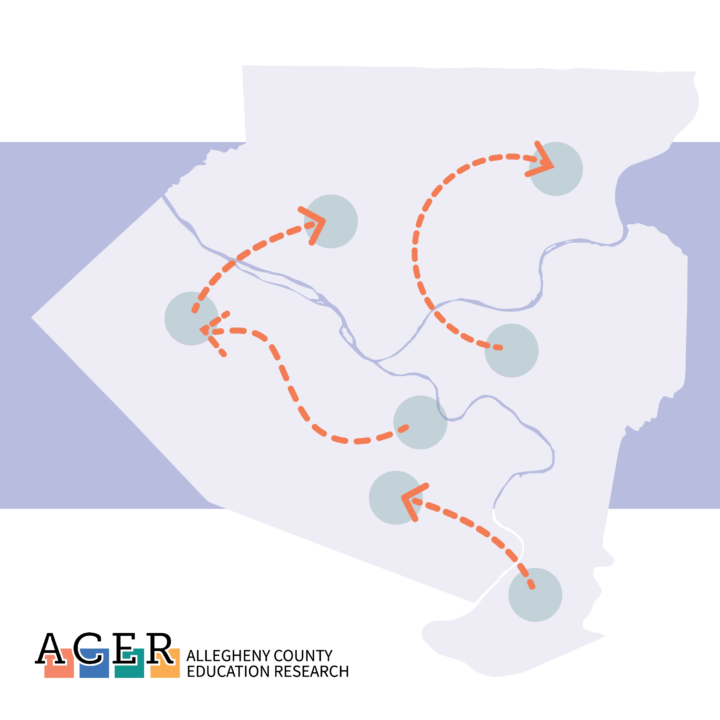
Publication
Teacher Mobility in Allegheny County, 2014-15 through 2019-20
Mary Eddins, Molly Pileggi

Publication